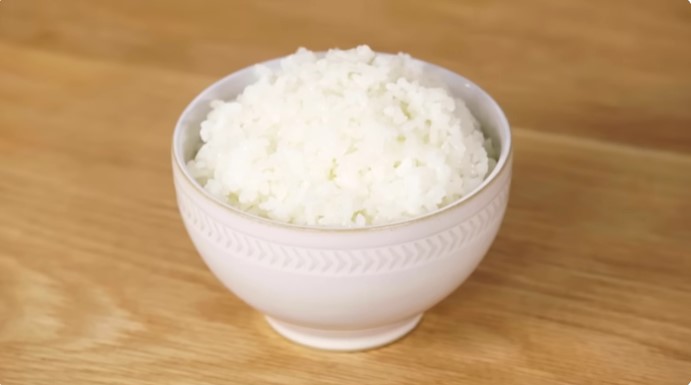White Rice Nutrition Facts
White rice, a staple food for many cultures around the world, is not just a simple grain but a source of several nutrients essential for health. While it has been scrutinized for its health implications, understanding its nutrition profile can help you make informed dietary choices. In this article, we’ll delve into the nutritional content of white rice, its benefits, potential risks, and frequently asked questions to provide a comprehensive overview.

Introduction
White rice is often viewed as a basic and somewhat mundane component of meals. However, it plays a vital role in diets globally, offering a versatile and affordable source of energy. Its subtle flavor and texture make it a perfect complement to a wide variety of dishes. While some may question its health benefits compared to whole grains, white rice has several nutritional advantages that are worth exploring. From providing essential vitamins and minerals to being a crucial part of many cultural cuisines, white rice deserves a closer look to appreciate its full impact on our diet and health.
Nutritional Content of White Rice
White rice is primarily composed of carbohydrates, which serve as the body’s main source of energy. Here is a detailed look at its nutritional breakdown per 1 cup (about 158 grams) of cooked white rice:
- Calories: 204
- Carbohydrates: 44.5 grams
- Protein: 4.3 grams
- Fat: 0.4 grams
- Fiber: 0.6 grams
- Manganese: 33% of the Daily Value (DV)
- Selenium: 22% DV
- Thiamin (B1): 22% DV
- Folate (B9): 22% DV
- Niacin (B3): 15% DV
- Iron: 14% DV
- Magnesium: 5% DV
Key Nutrients
- Carbohydrates: White rice provides a significant amount of carbs, essential for energy production.
- Vitamins and Minerals: It is often enriched with B vitamins like thiamin, niacin, and folate, as well as minerals such as iron and manganese.
- Protein: Although not a high-protein food, it still contributes to the daily protein intake.
Health Benefits of White Rice
1. Source of Energy
White rice is an excellent source of energy due to its high carbohydrate content. This makes it particularly beneficial for athletes and individuals with high energy needs.
2. Rich in Vitamins and Minerals
Enriched white rice provides essential vitamins and minerals such as thiamin, niacin, and folate, which are crucial for energy production, brain function, and DNA synthesis.
3. Easy to Digest
Its low fiber content makes white rice easy to digest, making it suitable for individuals with digestive issues like irritable bowel syndrome (IBS) or those recovering from certain stomach ailments.
4. Suitable for Gluten-Free Diets
White rice is naturally gluten-free, making it a safe choice for those with celiac disease or gluten sensitivity.
5. Pre- and Post-Workout Nutrition
Due to its high carbohydrate content, white rice is ideal for replenishing glycogen stores before and after workouts, aiding in energy levels and recovery.
Potential Health Risks
1. High Glycemic Index
White rice has a high glycemic index, which means it can cause rapid spikes in blood sugar levels. This is particularly a concern for individuals with diabetes or insulin resistance.
2. Low Fiber Content
Compared to whole grains like brown rice, white rice has significantly less fiber, which is essential for digestive health and maintaining steady blood sugar levels.
3. Arsenic Content
Rice can accumulate arsenic from the soil and water where it is grown. Although white rice generally has lower arsenic levels than brown rice, it is still advisable to consume it in moderation and to rinse it thoroughly before cooking.
4. Potential for Weight Gain
Consuming large portions of white rice regularly can contribute to weight gain if not balanced with other nutrient-dense foods and appropriate portion control.

Frequently Asked Questions
What is the nutritional difference between white rice and brown rice?
Brown rice is considered a whole grain and retains its bran and germ, making it higher in fiber, vitamins, and minerals compared to white rice. However, white rice is often enriched with nutrients and is easier to digest.
Is white rice bad for diabetics?
White rice has a high glycemic index and can cause rapid spikes in blood sugar levels. Diabetics should consume it in moderation and balance it with low-GI foods.
Can white rice be part of a healthy diet?
Yes, white rice can be part of a healthy diet if consumed in moderation and balanced with other nutrient-rich foods. It provides essential vitamins and minerals and is a good energy source.
How can I reduce the arsenic content in white rice?
Rinsing white rice thoroughly before cooking and using a large amount of water for boiling can help reduce its arsenic content.
Is white rice suitable for weight loss?
White rice can be included in a weight loss diet if portion sizes are controlled and it is balanced with vegetables, lean proteins, and healthy fats.





